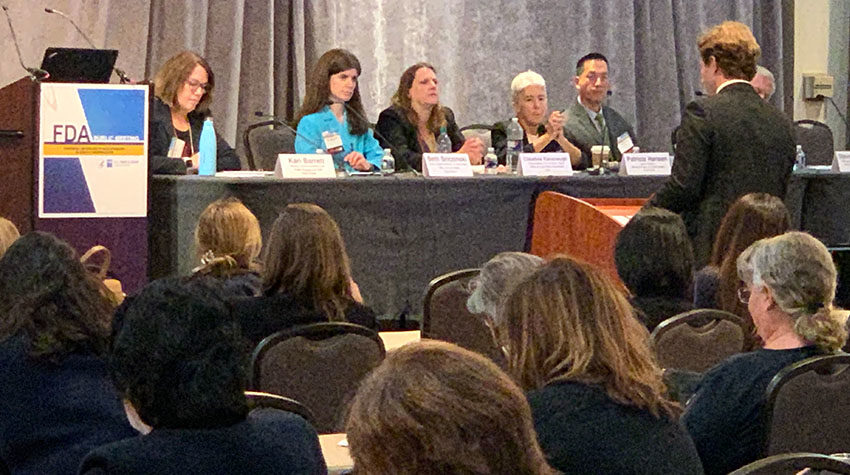
February 23, 2023Animal Law & Policy ClinicFDA Says Plant-Based Milk Alternatives Can Be Labeled & Sold As “Milk”
FDA agrees with Harvard Animal Law & Policy Clinic policy proposal on the labeling of plant-based milk alternatives
Yesterday, the Food and Drug Administration (FDA) announced its long-awaited draft guidance, “Labeling of Plant-based Milk Alternatives and Voluntary Nutrient Statements: Guidance for Industry.” In the document, the agency wisely proposes that plant-based milk products continue to be sold and labeled as “milk” in marketing and packaging materials. The guidance also recommends voluntary packaging statements conveying how such products nutritionally compare with standard cow’s milk.
In September 2018, the FDA requested information on the labeling of plant-based milk alternatives with terms that include the names of dairy foods such as “milk”–a move that worried many producers of plant-based products.
At the subsequent public hearing in 2019, Harvard Animal Law & Policy Clinic students Gabriel Wildgen ’20 and Kelley McGill ’20 urged the FDA to continue allowing food labels to use standardized terms, such as milk, and each repeatedly returned to the lectern to rebut the arguments of dairy industry representatives. Both students then worked on the Clinic’s detailed 10-page comment submitted to the FDA.
In that submission, the Clinic demonstrated that consumers are not confused by plant-based milk alternatives being called milk, contrary to dairy industry claims, and also argued that appropriately qualified food labels are a form of commercial speech protected under the First Amendment.
After reviewing 13,000 public comments on the issue, the FDA now agrees–determining not only that consumers generally understand plant-based milk alternatives are not cow’s milk, but further that the public purchases those products precisely because they do not contain dairy. Indeed, last year the USDA reported that US per capita consumption of cow’s milk has dropped by nearly 50% since 1970.
The FDA will be accepting public comments on this guidance for 60 days, after which the agency will finalize its terms. This guidance also does not apply to other plant-based dairy alternatives, such as plant-based cheese or yogurt alternatives. On that topic, the agency stated it “is in the process of developing recommendations on the labeling of other plant-based products and will communicate further updates when available.”
